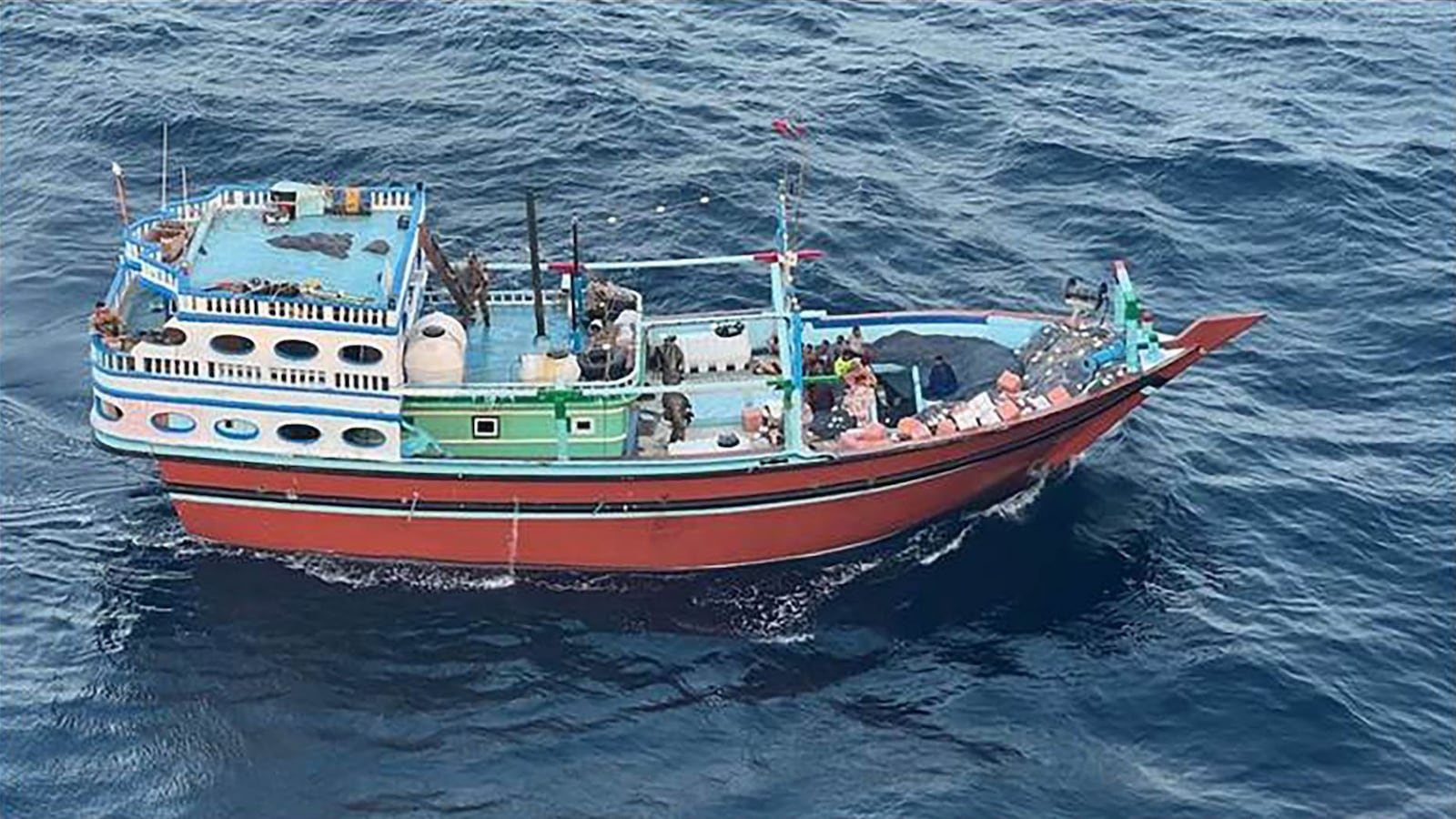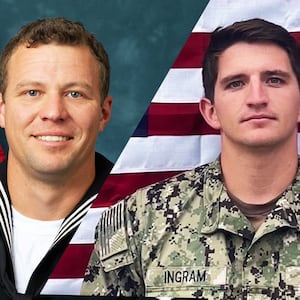Four men were charged on Thursday in connection with the seizure of illegal Iranian weaponry allegedly bound for Yemen’s Houthi militia in a mission last month that left two U.S. Navy SEALs dead, according to the Department of Justice.
The suspected weapons smugglers were taken into custody in Richmond, Virginia, after their unflagged dhow–a sailing vessel that usually sports long, thin hulls– was intercepted by a U.S. Navy Ship in a risky night-time operation.
Detained as material witnesses in the matter were 10 other crew members aboard the vessel, eight of whom similarly made an initial court appearance in Richmond on Thursday.
It was previously reported that one of the SEALs fell into the water while attempting to board the vessel amid eight-foot swells on Jan. 11. The other, according to naval protocol, dove in after his teammate. Both were declared lost at sea until their status was changed to presumed deceased after a 10-day search.
One of the four men, Muhammad Pahlawan, is charged with unlawfully transporting a warhead and making false statements. The other three—Mohammad Mazhar, Ghufran Ullah and Izhar Muhammad—are charged with providing false information to U.S. Coast Guard officers regarding the vessel’s crew and cargo. All four were carrying Pakistani identification papers, according to the Justice Department.
None is charged directly with the deaths of the SEALs, identified as Navy Special Warfare Operator 1st Class Christopher Chambers, 37, and Navy Special Warfare Operator 2nd Class Nathan Gage Ingram, 27.
U.S. Deputy Attorney General Lisa Monaco said in a statement, “The flow of missiles and other advanced weaponry from Iran to Houthi rebel forces in Yemen threatens the people and interests of America and our partners in the region.
“Two Navy SEALs tragically lost their lives in the operation that thwarted the defendants charged today from allegedly smuggling Iranian-made weapons that the Houthis could have used to target American forces and threaten freedom of navigation and a vital artery for commerce,” she continued. “Alongside our partners around the world, the Justice Department will continue to deploy every available tool to combat this grave threat.”
Charging documents unsealed on Thursday revealed that the team of SEALs and a U.S. Coast Guard team seized “what is believed to be Iranian-made advanced conventional weaponry,” including critical components for medium-range ballistic missiles and anti-ship cruise missiles, much of it concealed inside tubing or among buoys.
The discovered weaponry was consistent with the kind used by the Houthis in a recent spate of attacks on U.S. military ships and international merchant vessels across the Red Sea and the Gulf of Aden, according to prosecutors. Representatives for the Iranian-backed rebels have described the attacks, which began in earnest last November, as a campaign to pressure Israel into ending its bombardment and invasion of the Gaza Strip.
Prosecutors alleged that the dhow’s crew denied smuggling any weapons. A few claimed to be drug smugglers, despite the fact that no drugs were found onboard. Though nearly all of the crew identified Pahlawan as their captain, he told the Coast Guard that the real captain had disembarked the vessel before the raid, and that he was just an engineer.
Pahlawan also said that he’d been in Iran for approximately the last two years, and had been working on the dhow for about two weeks. He told investigators that he’d been given a satellite phone by the dhow’s Iran-based owner, his employer, who called him several times during the voyage to ask for updates on the vessel’s location. Tracing the calls, federal agents identified the employer as an affiliate of the Islamic Revolutionary Guard Corps, a designated terrorist organization.
After taking the crew into custody, Navy forces determined the dhow “unsafe and unseaworthy” and sank it according to protocol, according to the charging documents.
If convicted of unlawfully transporting a warhead, Pahlawan faces up to 20 years behind bars.”







